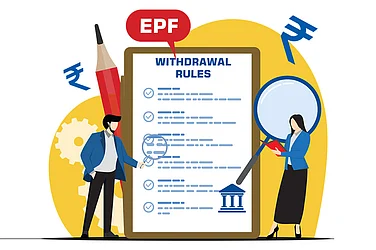In India, the majority of women of marriageable age are married, so when we talk about financial freedom for women, this category needs to top the list. The society often ignores them, takes their work for granted, and trivialises and laughs off any voices of dissent. Examples abound: whether it is the recent judgment of the Chhattisgarh High Court acquitting a man of marital rape or the memes doing the rounds on the story and actions of a newly-married woman, Richa, portrayed in the movie, Mrs, which is a sharp commentary on the patriarchal structure that typical Indian marriages are.
Many a times, even well-meaning men do not realise how deep an impact social mores have on behaviours and expectations that are mostly meant to be fulfilled by women. In this scenario, it’s a must to work towards achieving financial freedom, which, in women’s cases, can take different forms depending on their situations.
I list the three-must have freedoms they should strive to achieve. One, the freedom to spend their money the way they want to and on themselves without any guilt. Two, using the power of money to assert their rights, if the need arises. Three, thinking about an independent corpus that can support them and their dependents if they were to fall on tougher times.
Surely, the number of women who work and invest has increased relatively. But it’s all too common to see working women spend all their money on running the household, buying consumer goods that are depreciating assets, or even taking the responsibility of repaying debts, such as credit cards and loans. In many cases, comments or their own guilt stalk them if they even think of prioritising themselves over the needs of the family.
There are ways to balance this though. A former colleague in Delhi paid the equated monthly instalments (EMIs) on the family’s home loan, but ensured that she was the first owner of the house taken in joint names. That done, she spent on herself guilt-free. To her, going to a salon regularly was something worthwhile, especially when her mother-in-law forbade her to wash her hair on certain days of the week!
Another close acquaintance in Bengaluru was “allowed” to work only when the husband realised they needed two incomes. She treated it as an opportunity to assert her rights. Gradually, but steadily, she has gained her independence and has been able to take decisions, such as making small renovations in the house, taking holidays with friends, besides putting away some money for her daughter.
Such stories of hope, satisfaction and independence that owning your money may provide are only small wins on the path to achieving true financial independence, which involves having enough money to support yourself when the need arises. A sudden death, an accident that leads to disability, a job loss, or a failed marriage may cripple you if you do not have something of your own to fall back on. In all such situations, you will also need the will and skill to handle things on your own.
It will not be easy. Society will leave no chance to guilt-trip and shame you, and question you at every step. Why not just care for your children and in-laws and learn to do household chores? Why do you spend so much on yourself? What’s the need to invest in your name? Why do you need a share in the family assets if it is causing a rift? No one will pose these and many other questions to any man, ever. Think about it and take the reins of your life in your own hands before it’s too late.














